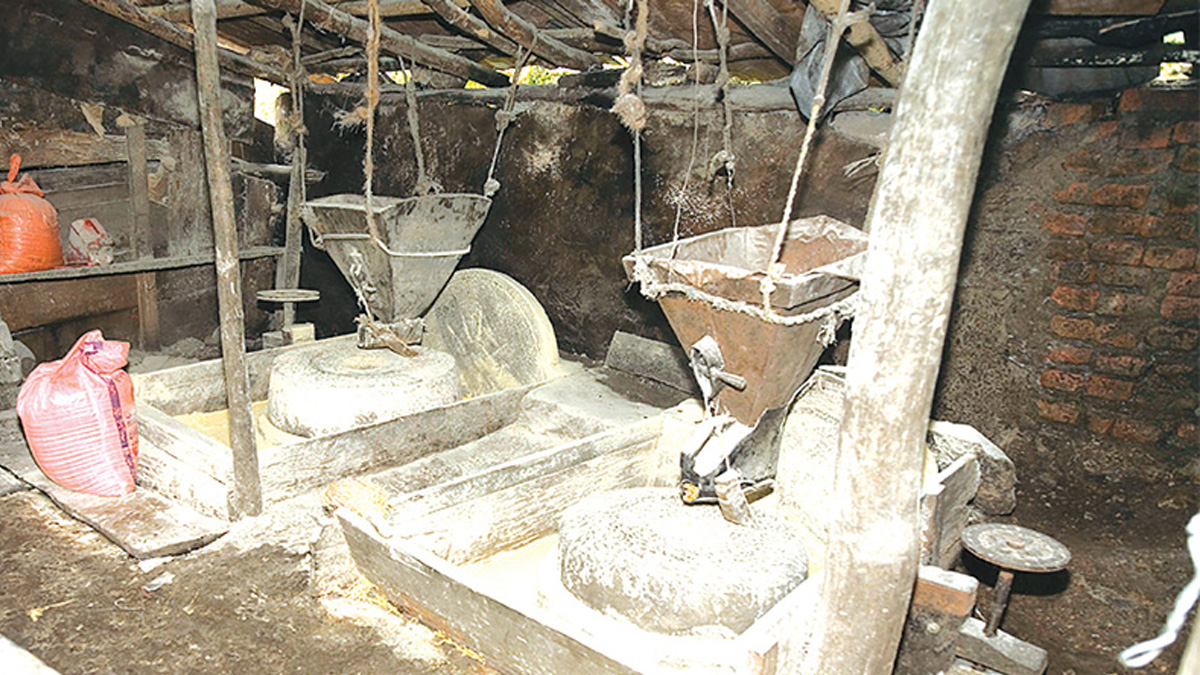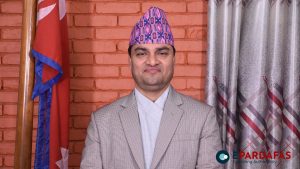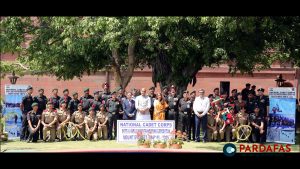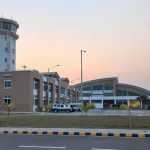
Gulmi village residents untouched by basic facilities dependent on Pani Ghatta

With the advent of modern technologies, indigenous technologies in general get threatened or vanished. But, Pani Ghatta (traditional watermill) in some places of Malika Rural Municipality in Gulmi district is still in use. Watermill is a structure that produces power with a large wheel being turned by moving water to run machineries such as grinding, rolling and hammer mills. Products like flour, paper, textiles and metal products are produced through the use of the mill in general.
The people of Hwangdi have rolled up their sleeves to conserve the traditional property. But, they are worried that they have been left behind in terms of development, as they lack basic facilities. The villages are largely untouched by the modern means of facilities like electricity and roads. The area is yet to be connected with the national grid and has no easy access to roadway facilities.
Flooding and landslides are major problems facing the locals here. Their connection with the district headquarters, Tamghas, and the centre of the rural municipality, Arkhabang remains cut off when heavy rainfall takes place.
Despite being deprived of basic facilities, the local people are proud of their indigenous technologies like watermill. A local Dhanbir Gharti, who operates a watermill, said that the watermills in the village have been in operation since years. Watermill products are healthier, of good quality and not easily perishable, he claimed. However, he is worried about the traditional technology being vanished with the new generation not showing interest.
The mill has been cost-effective for the poor people, said another local Yam Bahadur BK. The service is available at a low cost, he said. “We have saved our old technologies. These watermills which we have made by ourselves are everything to us,” he said.
He stressed the need for transforming these mills into improved ones in the days to come.
Watermills have been popular since her remembrance, said Dil Maya Ghartimagar, 84, of the village. The previous generation had to depend on the mill for meeting the family food requirement, she recalled. “We did not use grains being ground outside the mill.”
Shedding light on the importance of the traditional technology, Deumati Gharti, 77, said the food items being crushed in the mill are tasty and of good quality. She however rued that the mill in other parts of the country are being disappeared with the availability of electricity and the construction of roads. “Old technologies maybe replaced by new technologies. We must converse our old technologies,” she said.
The mill is beneficial in many ways, said Top Bahadur Gharti, a watermill operator. “Getting grains crushed in the watermill is cost-effective than that in the mill run by electricity.” Grains getting crushed in the mill do not easily rot and get affected by insects, claimed another local Bishnu Bahadur Gharti.
The local people and authorities concerned are however concerned about the existence of the mill. Lately, rivers are drying up, thus forcing it to shut in many cases, said a watermill operator Suntale BK.
“There have been difficulties to run watermills with the depletion of the water in the rivers. We are running them only during monsoon when there are rain-fed rivers,” he said.
There is a need to keep its existence for generation, viewed Rekha Khadka of the locality. She however blamed authorities concerned for paying least attention to conserve it. “It is costlier to get services of a mill run by electricity. We are worried about the possible disappearance of watermills for want of water,” she said, adding that water sources getting dried up has made the matter worse.
Being prompted by development activities taking place in other parts of the country, the local people have however univocally demanded basic facilities while voicing for the conservation of the traditional technologies like watermills. They think that they were left behind in terms of development activities without basic facilities like electricity, roads and irrigation. “We have yet to get development activities without electric power. Watermills are good, but they are our compulsion,” said a local resident Putali BK. She stressed the need for development activities while conserving watermills.
Muga BK was of the view that Dalit and indigenous nationalities in the villages were getting a back seat without development. “Watermills will be managed with development activities,” he said. He called for improvements in the structures of the mills.
Watermill operators, Dhanbir, Top Bahadur and Suntale have demanded for watermill improvements. “The structures housing watermills have been dilapidated. They need repair,” they said.
Around 1,700 members of 110 families in the Hwangdi area in Malika are dependent on watermills to get crops being crushed.
Six watermills are in operation in this ward. Devi Ram Aryal, chair of Malika Rural Municipality. He has stressed the need for conserving watermills for the new generation. The watermills in the area will be managed by allocating budget, he said. “We are at work to bring infrastructural development to rural human settlements. We will conserve the traditional watermills alongside other development activities,” he said.












Comments